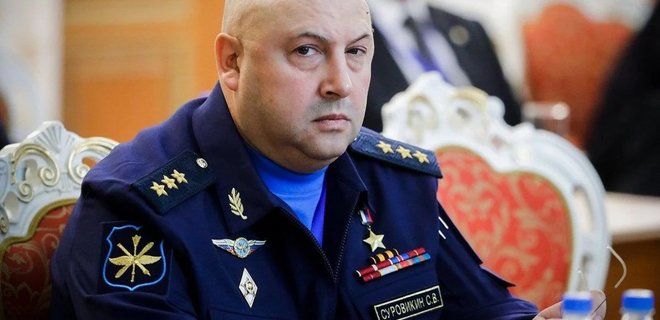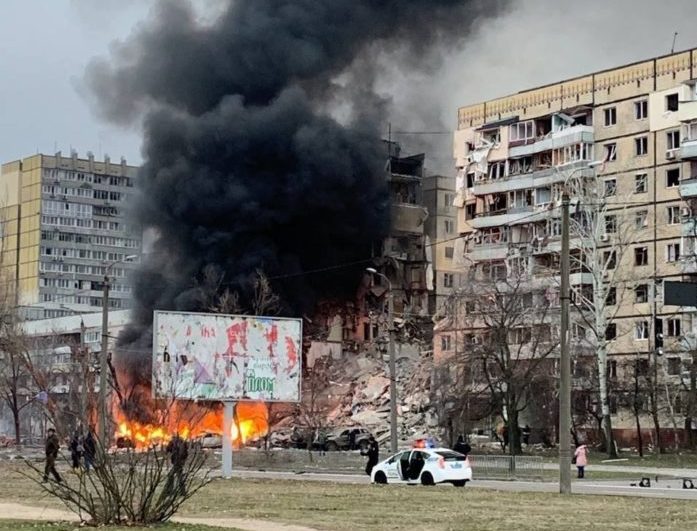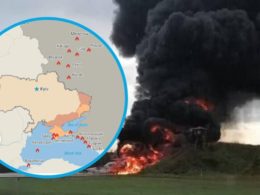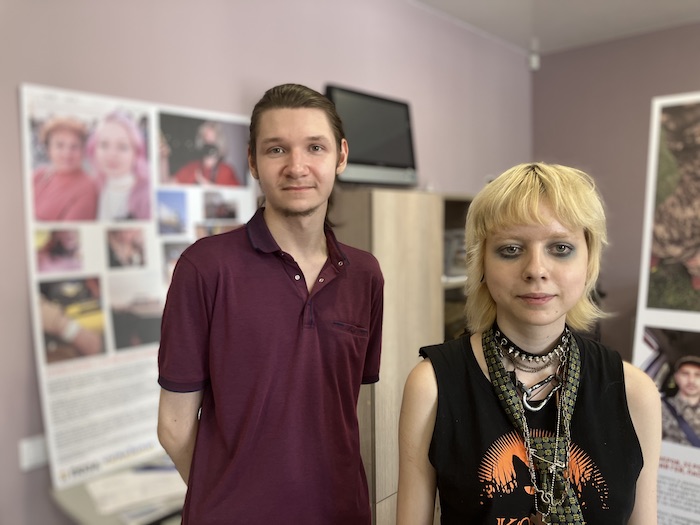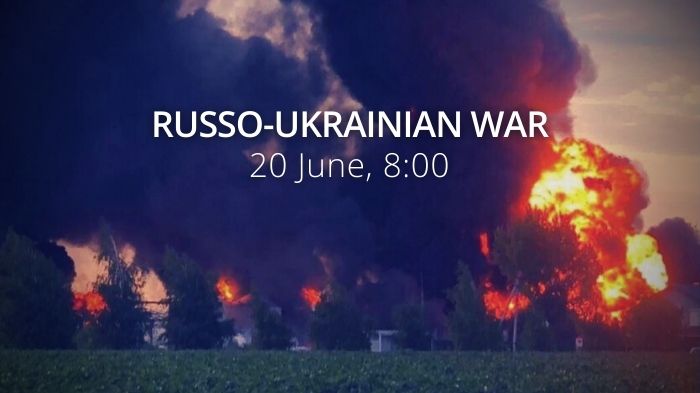On 8 October, Russia’s Minister of Defense Shoigu appointed general Sergei Surovikin as the commander of Russian occupation forces in Ukraine, publicly naming this position for the first time. Having led Russian troops in Syria and accused of war crimes in the Second Chechen war, Surovikin is rumored to be a fan of massively bombing civilian infrastructure.
For the first time since the beginning of its full-scale war, the Russian army received a single commander of the invasion forces of what it calls a “special military operation” in Ukraine. Previously, each of the four groups (“South,” “East,” “Center,” and “West”) had their own commanders. Since June 2022, Sergei Surovikin led the “southern” group of the Russian army, which led the operation to capture Sievierodonetsk.
However, the Russian occupation troops did have an unofficial commander. In April, BBC News reported that commander of the southern group Aleksandr Dvornikov was in charge. Later, the Conflict Intelligence Team, citing its sources, said that Deputy Defense Minister Gennadiy Zhidko headed of the Russian troop grouping.
The commander of Russia’s Vostok battalion Aleksandr Khodakovsky suggested in Telegram that Surovikin’s appointment would simplify army leadership and interaction between units. At the same time, this reshuffle may prove fatal for the commander himself, as he will be blamed for the failures and defeats in Ukraine.
Russian front collapses in Kherson Oblast as Ukraine also continues advancement in country’s northeast
Recently, Ukraine has liberated stretches of land in the northeast and south, and on the day that Surovikin was appointed, an explosion badly damaged the Crimean bridge, which connects the occupied peninsula to Russia and is crucial for delivering reinforcements to Russia’s southern grouping.
Crimea’s Kerch bridge partially collapses after powerful explosion: LIVE UPDATES
Sergey Surovikin was born in Novosibirsk in 1966 (now he is 55 years old), graduated from Omsk Higher Combined Arms Command School. He commanded the 42nd Guards Motorized Rifle Division during the war in Chechnya. Human rights defenders accused him of abetting war crimes committed by his subordinates.
The book International Tribunal for Chechnya, which was published in 2009 under the editorship of Stanislav Dmitrievsky, states that Sergei Surovikin is allegedly responsible “for refusing to take necessary and reasonable measures to punish his subordinates who have committed war crimes and crimes against humanity by illegally detaining an unknown number (at least 80) of civilians, using torture, ill-treating, infringing on human dignity, terrorizing the civilian population, carrying out collective punishment, killing one civilian, abducting civilians, destroying civilian property in the form of the burning of four households, and looting civilian property.”
Then from 2013 he commanded Russia’s Eastern Military District, from 2017 – the group of Russian troops in Syria, and later became Commander-in-Chief of the Aerospace Forces. In the same year, President Vladimir Putin awarded Surovikin the Gold Star of the Hero of Russia.
In July, Ukraine’s intelligence chief Serhiy Budanov said that intensified missile strikes on Ukrainian civilian objects was a new tactic attributed to Sergei Surovikin. According to him, the former head of the Aerospace Forces was used to attacking from the air, disregarding the lives of civilians.
Supporting the idea that Surovikin is a fan of bombing civilians are two sources of Meduza close to the Kremlin and Russian government who call him a supporter of massive missile strikes against infrastructure, including civilian infrastructure. “Surovikin has no sentiments,” one of them noted, Meduza reported.
As well, the Russian media Vazhnye Istorii reported that Generals Sergei Surovikin and Aleksandr Lapin are really in charge of the Russian army instead of Defense Minister Sergei Shoigu, who had fallen out of favor with Vladimir Putin. According to the journalists, Putin has entrusted the war to “practitioners” who have proven themselves well before.
Earlier, Euromaidan Press reported about personnel swaps on other directions of the Russian occupation troops in Ukraine: on 28 September, the commander of Russia’s Western military district was changed for fifth time in five months, as Roman Berdnikov replaced Aleksandr Zhuravlyov.
Kremlin changes commander of Western military district for fifth time in five months




